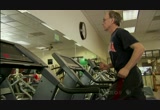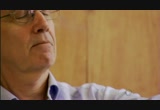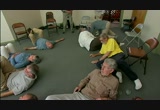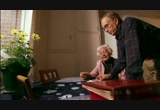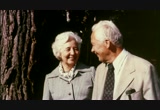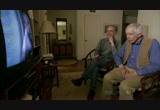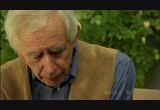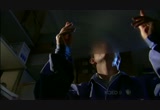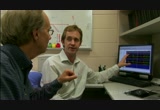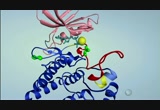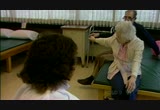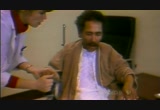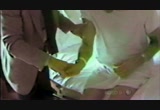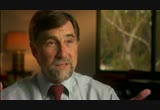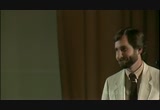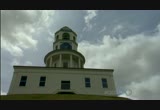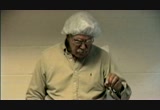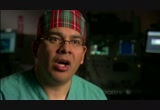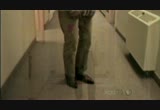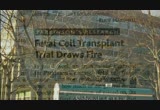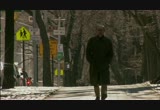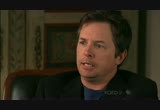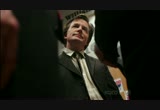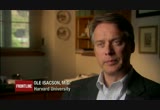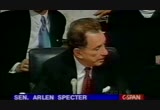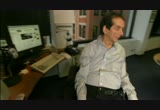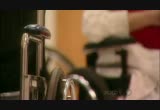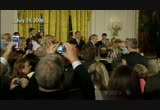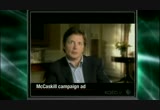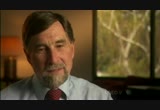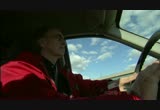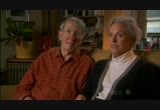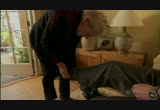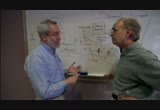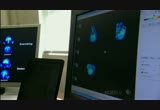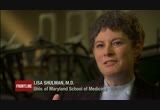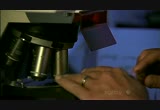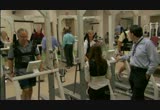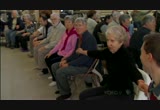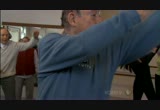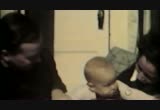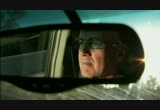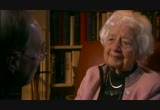tv Frontline PBS September 12, 2012 5:00am-6:00am PDT
5:00 am
>> reach all the way down to the floor, without moving your feet. >> living with parkinson's disease-- a story frontline correspondent dave iverson and his family know firsthand. >> i hadn't thought that it would happen, but it has happened. >> parkinson's affects a milln americans. >> i have a mindset that i am going to... not let this blankety parkinson's get me down. >> and it's been front and center in the debate over embryonic stem cell science. >> this bill would support the taking of innocent human life, so i vetoed it. >> you know, when you're talking about the potential to heal and cure so many and it not going forward, it pissed me off and i
5:01 am
wanted to do something. >> michael j. fox. >> now the politics have changed, but the quest for a cure continues. >> how close are we? we're a lot closer than we were ten years ago. a lot closer. >> tonight ofrontline, correspondent dave iverson tracks the pursuit of parkinson's and his own family journey. >> frontline is made possible by contributions to your pbs station from viewers like you. thank you. and by the corporation for public broadcasting. major funding is provided by the john d. and catherine t. macarthur foundation, committed to building a more just, verdant and peaceful world. and by reva and david logan, committed to investigative journalism as the guardian of
5:02 am
the public interest. additional funding is provided by the park foundation, dedicated to heightening public awareness of critical issues. and by tfrontline journalism fund, supporting investigative reporting and enterprise journalism. >> narrator: it isn't dramatic. it's a disease of inches: a hand starts to shake; a step becomes
5:03 am
a shuffle; life in gradual slow motion. parkinson's arrives without fanfare. you're jogging at the gym one day, and you notice that one arm isn't swinging the same as the other. in time, other signs accumulate: a leg starts to tingle, a finger trembles. none of it seems like a big deal, so you keep living your life. >> and we will take your calls when we come back. if you'd like to join in our conversation about faith and politics, you can call us now. >> narrator: for me, that meant continuing to host radio and tv shows in san francisco... one of the issues that's come up in this campaign. ...and doing my best to ignore what wouldn't go away. it took two years before that odd collection of symptoms formed a whole diagnosis. i had parkinson's, and it was
5:04 am
about to send my life in a new direction. it's not the worst diagnosis. right now, i'm doing fine. >> cross your fingers. thumbs up. press. >> narrator: but as everyone in this parkinson's exercise class told me, the disease is a relentless foe, handing out its challenges one by one. >> stretch your arms... >> there's something about the inevitability of it. parkinson's is a very gradual disease, but inevitably it's going to get you. >> lift your eyes. >> you go through a period of adjusting when you realize your life is going to be different than you had imagined. >> narrator: life changes for parkinson's patients when a key neurotransmitter called dopamine goes missing. >> put your hands inside your knees. >> narrator: dopamine is like the oil that lubricates your
5:05 am
motor system. without it, muscles stiffen, arms shake. sometimes you stutter and stop. >> by counting your steps, you break up that festination problem. >> one, two, three, four, five, six, seven, eight. >> narrator: drugs help for a while, and a new surgical technique called deep brain stimulation can relieve symptoms for several years. >> and go, and go, and go. >> narrator: but the disease is progressive, and there is no cure. >> roll to your right. >> narrator: tom shearer has had parkinson's for 15 years, and early on he coped well. >> things had been going very well, and then all of sudden, out of the blue, i disintegrated. and it suddenly occurred to me that this was not a battle that i was going to win. >> look back behind you, then look back behind you over here, then look back behind you over there. >> narrator: is parkinson's a
5:06 am
winnable battle? it's a question i've thought about ever since i got my own diagnosis, in part because it made me think about my dad. my father was a man with an easy smile and a ready wit, and to his great good fortune, he had quite a partner at his side, my now 96-year-old mother adelaide. >> it's such a natural picture, really. >> narrator: yeah, well, i don't think he would have been posing like that. >> well, who knows? you remember he was the lone ranger once. >> narrator: my father was a performer at heart, and my parents married not long after he'd finished a stint in radio, working on the original "lone ranger." >> hi-ho, silver, away! >> narrator: i love this letter from his broadcasting company. >> oh, this is a wonderful letter. read it.
5:07 am
>> narrator: "it's with regret that we learn that bill is considering the completion of his course, as he has a fine voice, good vocabulary, and an instantaneous mind." i always loved that phrase, "an instantaneous mind." my dad left broadcasting to become a teacher, but the spoken word remained central to who he was. language was his gift, a gift that began slipping away in the fall of 1971. >> i was walking with him, and i thought he was holding his hand, just not in an ordinary way. it was... it looked stiff and different. >> narrator: it was the first sign of parkinson's, a condition that not only steals movement, it can rob you of something more. >> he was mostly concerned about his voice, because he did have a
5:08 am
good voice, and that deteriorated gradually. toward the end, he really couldn't talk. >> narrator: do you think that was the hardest thing for him? >> hardest, by far the hardest thing. it was harder than not moving, actually, i think, in many ways. >> there he is. >> narrator: there he is. >> poetry in motion. >> narrator: my brother peter. like siblings everywhere, we've talked about how we grew up, what we took from our parents, including how our dad dealt with parkinson's. >> i think he conveyed to us in one way or another a sense about life in general being a fragile enterprise. i think he was one of those people who, you know... an immigrant's son who said, "no excuses, no whining, get to work." pow! >> narrator: that's a pretty good kick. >> it is a pretty good kick.
5:09 am
>> narrator: like my dad, peter became a teacher, and in the summer of 1992, 20 years after my dad's diagnosis, he, too, felt the same first signals of the disease. do you remember having a sort of sense of foreboding about that? >> i think that's it. there had been too many signs, too many physical manifestations, too many indications to think otherwise. it's always there. it's one of the first things you think about in the morning and one of the last things you think about at night, and it says to you, you know, take advantage of the time you have. you work a little harder, and you realize the timetable is not the same. >> narrator: do you remember the conversation that you and i had when i called you up and told you that i had been diagnosed as well? >> yeah, i do remember that. >> narrator: do you remember what you said to me? >> narrator: mercifully, i
5:10 am
don't, but i'm about to be reminded, i think. >> narrator: no, i've always remembered it. you said to me, "we'll just have to fight this together." >> i do remember. >> narrator: my father, my brother, and me: we share a common journey. and now i find myself wondering about the road ahead: what i might learn, and what might slip away. >> put your hands closer to your chest, but don't touch your fingers. >> narrator: given my family story, i couldn't help but wonder if parkinson's was genetic. >> look here, and look here. >> narrator: so i enrolled in a study at jacksonville's mayo clinic. until recently, the idea that your dna might cause parkinson's was considered unlikely.
5:11 am
but geneticists like the mayo clinic's dr. matthew farrer are now taking a closer look at the role of the family tree. >> there were no genetics in parkinson's ten years ago, none. this century, the 21st century, it's genetics. the genetics provides molecular clues, rational clues as to what's going on in the disease process. >> narrator: in the past ten years, farrer and other geneticists have found mutations that cause parkinson's in six different genes, and they're looking for more. >> just tell me about your family, and i can just draw them in. >> narrator: okay. so there is me, and i have parkinson's. >> all right. >> narrator: and so does one of my brothers, and my father had parkinson's. and beyond individual family ties, geneticists are now tracking parkinson's genes in whole populations. >> it's my understanding that you come from norway. your background is norwegian? >> narrator: yeah, my grandfather was born in norway,
5:12 am
in larvik, norway. >> grandfather on which side? >> narrator: my father's side. in 2004, mayo scientists helped discover the most common parkinson's mutation in the lrrk-2 gene. they've now traced it to several locations, including north africa, near the ancient site of carthage, and, oddly enough, to my ancestral home, the coast of norway. >> it spread to norway, we think, because of viking occupation. there were some vikings living in and around carthage at around 1000 ad, and this particular mutation is quite common on the northern coastline of norway. >> narrator: my grandfather's birthplace is on the norwegian coast, next door to norway's first viking settlement. so did my own family's parkinson's saga begin a thousand years ago, when some seafaring relative came calling in carthage? >> with your particular
5:13 am
description of your disease and your family history and origin, there's quite a high chance, i would think, that you have a genetic form of the disease. >> narrator: quite a high chance, though still not certain. but oddly enough, that possibility might bring a bit of family luck, and here's why. this is a graphic representation of the lrrk-2 gene, the gene in question, and it offers researchers a readymade target for fixing the disease. farrer thinks the key is repairing what he calls the gene's "faulty doorway." it's the hinge of that door that you want to... >> that's broken. >> narrator: that's broken. >> that's broken in lrrk-2, yeah. the hinge is broken in lrrk-2. the door is always open. >> narrator: and the thought would be to create a drug that could close the door? >> actually fill the doorway. get in the way. >> narrator: finding a drug that would fix the mutation would be great news for potentially affected families like mine, but parkinson's usually appears out
5:14 am
of nowhere, with no family ties in sight. so besides genes, there must be something else that jump-starts the disease. one theory first made news more than 20 years ago. >> first, a background report on parkinson's disease by dave iverson of public station whaa, madison, wisconsin. >> narrator: and in one of life's little ironies, it was a story that i had covered, too. this is what's known about parkinson's disease. it's progressive, and it's incurable. back in the mid-1980s, i had reported on the work of a young stanford neurologist named bill langston, who had come across something startling that seemed to cause parkinson's. now, more than 20 years later, i've headed back to bill langston's parkinson's institute. since the 1980s, langston and his team have pursued whether environmental toxins might trigger the disease, a quest
5:15 am
quest that began with a most unusual patient. >> it really started with my getting called to see a patient who had developed parkinson's literally over two or three days. and he was young; that's not typical. it came on quickly; that's not typical. so he was a true medical mystery. >> can you raise this hand up at all? can you raise that hand up? >> he was literally frozen like a statue. >> i can see you trying. >> so i knew instantly we had a neurologic condition on our hands, but what? we had no idea. >> narrator: what langston and his team were about to discover would turn the parkinson's world upside down. >> in taking history, we asked him if he was on any medications, and to our shock, he wrote the word "heroin"-- not a traditional medication, but that was our fist clue. we were eventually able to figure out that there was a tainted heroin on the streets in northern california, and that this heroin was probably the most selective brain toxin ever
5:16 am
discovered. after these addicts shot up, it went straight into the brain like a nike missile and literally killed the same cells in the brain that died in parkinson's, and we had literally instant parkinson's disease. >> can you stand up? let's try to stand up. >> narrator: but did this condition really equate to normal parkinson's? one test would be to see whether standard parkinson's drugs would help. >> can you hop up and down? >> the results were truly dramatic. it literally brought these patients back to life. >> your left foot, your right foot. >> narrator: but just a half- hour later, the parkinson's medication begins to wear off, and soon, the patient is back to his frozen state. >> how do you feel now? >> ( mumbling ) >> you can't move? >> narrator: langston now knew a street drug could cause a parkinson's-like condition. but what the scientists discovered next radically altered the nature of
5:17 am
parkinson's research. it turned out that the synthetic heroin, mptp, had a chemical makeup strikingly similar to a widely used herbicide, paraquat. >> that was an "aha!" moment, because if here a compound could cause all of the motor symptoms of parkinson's was also very, very chemically similar to an herbicide that's widely used, it really raised the question how many of those things are out there. we now are hunting, specifically looking for chemicals, one or more chemicals in the environment that might play a role in parkinson's disease. >> narrator: the findings galvanized the scientific community. researchers began looking into whether parkinson's was caused by a variety of environmental triggers, and history seemed to support that approach. scientists knew that parkinson's hadn't even appeared in the medical literature until 1817,
5:18 am
the beginning of the industrial revolution, when toxins were first poured into the environment. they now wondered if parkinson's could be, at least in part, a modern disease, triggered by toxins like mptp. >> i think it's a very exciting time for research in this disease. and for patients with parkinson's disease, and their families, that's good news. thank you very much. we had real hope that this would solve the disease. and i thought, three to four years we would have the answer. in fact, in three to four years, we did have an answer, and that was that mptp itself was not the cause of parkinson's. >> narrator: not the cause, but a key clue. indeed, recent studies have built on langston's initial breakthrough, showing that pesticide exposure can increase disease risk by as much as 70%. and many scientists now think
5:19 am
genes and the environment might actually work hand in hand to cause most parkinson's, with certain genes triggering the disease only when a toxic exposure takes place. >> there's an old saying that genetics loads the gun and environment pulls the trigger, and that may be the case in parkinson's. we still don't have a smoking gun, that's for sure, but that's what we're looking for. >> narrator: and so the time- consuming hunt for what causes parkinson's continues. but time, of course, is what people with parkinson's can least afford. for them, the quest that matters most is the search for a cure. >> when i first met peter, he was a man who was truly suffering. okay, that's good. he was a thoughtful, intelligent man, but he had some real periods of disability.
5:20 am
and he was really desperate and hopeful that we could do something to kind of give him his life back. okay, peter. >> i actually didn't know how bad it was until i saw myself. and i felt like somebody should take me out and shoot me. i didn't know that i had gone downhill that much. >> narrator: in 1999, canadian peter sauer went to see a team of specialists in halifax, nova scotia. his symptoms could no longer be controlled by parkinson's drugs. the halifax team, led by dr. ivar mendez and harvard neuroscientist ole isacson, was trying to refine a controversial procedure they hoped would lead to a cure: a fetal brain cell transplant. >> what we're learning is how to reconstruct the brain. cells can actually be put back into the brain. they can grow new connections and release this transmitter,
5:21 am
this chemical, dopamine, in a natural and appropriate way. >> narrator: the idea was to restart dopamine production by taking fetal neural cells, derived from aborted tissue, and transplanting them into a patient's brain. >> now we talk about the concept of brain repair. brain repair, you know, when i was in medical school, which is really not that long ago, was not even something that was thought about. so we have advanced tremendously to understand that we can potentially repair the brain. >> narrator: but would brain repair work for peter sauer? >> you can see here very clearly... >> narrator: images taken of a brain from an early transplant recipient were promising. >> from this bunch of cells, you can see these little wiggly, brown fibers that are growing and restoring that area of the brain that is affected by parkinson's disease.
5:22 am
>> narrator: by way of comparison, here's the same section of the brain from a parkinson's patient who did not have a transplant. here, there's no evidence of brain cell activity at all. there's nothing going on there. >> yeah, there's nothing going on. >> narrator: the microscopic evidence is compelling, but the evidence in person is stunning. here's peter sauer at the age of 65, as seen without medication prior to his transplant. and here's peter sauer, age 72, without medication today. >> you look really fantastic, peter. >> i don't know what to say. i feel fantastic. i turned out to be the wunderkind. i don't know why that is. >> today i see a man who is full of life and energy. i'd actually have a hard time keeping up with peter. when i see things like that, and i remember the way patients were
5:23 am
before the surgery, it's like witnessing a miracle, because you see they really do have their lives back. it's quite something to witness. >> narrator: but for people with parkinson's, the hope engendered by stories like peter sauer's proved short-lived. a year after peter's procedure, a series of fetal transplants at the university of colorado, utilizing a different surgical technique than the halifax team, yielded deeply disappointing results. while some recipients showed modest improvement, others wound up far worse, unable to even control their own bodies. >> even though some patients recovered, some patients recovered too much. in other words, they started to show excessive movements rather than just enough. so instead of being helped, they were actually made worse. >> narrator: it was a demoralizing setback, and, despite the halifax success, served to largely freeze the
5:24 am
field of fetal transplants in its place. >> there's an old saying in science that research is the process of going up alleys to see if they're blind. and more often than not, they are. but that's what we do. >> narrator: meanwhile, the clock ticks. this year, some 50,000 people in the united states will wake up and sense something's wrong. they're more likely to be men than women, more likely to be people my age. but sometimes that unwelcome wakeup call arrives when you're young, when your career is just taking off. >> since you're obviously not a patient and i'm not getting anywhere, can you tell me where i can find a guy named lou who drives an ambulance, and i'll get out of your life. >> i'm lou. >> i was doing a film in florida and was partying pretty good, and was used to waking up not in great shape. but i woke up one morning, and my pinky was twitching, and it
5:25 am
was just persistent. and i just... i realized that there was just nothing i could do to stop it. and i thought, is this like dts? who gets dts in a pinky? you know, with a lot of injury or a lot of catastrophic illness, it's like stepping off a curb and getting hit by a bus. but with parkinson's, it's like actually being stuck in the middle of the road while a bus is coming, and you can hear it, you have no idea how big it is, you have no idea how fast it's going, you have no idea whether it's going to hit you all the way or just kind of graze you and screw you up. it's a lot to think about. it's not anything that i was ready to introduce to the neighbors until i really understood it. >> narrator: do you remember a time when you were at peace with the bus coming? >> there was a time i was talking to my therapist, and i said, "everything is great in my life, wonderful, my kids, my wife." my work was going well. but i said to her, "you know, i
5:26 am
feel like i'm still waiting for the other shoe to drop." and she said, "you have parkinson's; the other shoe already dropped." and it was just this, whoa! i just went, "wow you're right." you know, what are they going to do to me? >> narrator: michael j. fox kept his diagnosis secret for seven years, but at the age of 37, he decided it was time to go public, and bring new attentn to the disease. >> when you're faced with something real, it demands something of you that you wouldn't have chosen for yourself. this is a real opportunity for me to help people. >> narrator: the same month michael j. fox went public, november, 1998, parkinson's was in the headlines for a different reason. >> for the first time, researchers have generated cells that are the basis of human life, and this could radically change the way medicine fights disease. >> narrator: a startling scientific development:
5:27 am
embryonic stem cells-- cells that are derived from embryos rather than fetal tissue-- opened a new door of possibility. suddenly there was the promise of creating cells that could replace what goes wrong in any number of diseases, and parkinson's was exhibit a. >> embryonic stem cells can generate any cell type in the body, including the dopamine cell that we were looking for. when we discovered that stem cells could actually develop into this very cell that we know is therapeutic for the patient, it was very exciting. >> narrator: scientists hoped that the new cells would provide more consistent patient treatment than some of the earlier fetal tissue experiments. but there was a catch: embryonic stem cells are created from frozen human embryos leftover from fertility clinics, and creating the new cells destroys the embryos, prompting intense controversy about the possibilities contained in a petri dish.
5:28 am
one key question was how federal funding for the controversial new research might impact diseases like parkinson's. >> will the elimination of the restriction on stem cells be a significant factor in expediting solving parkinson's? >> yes, it certainly will. it will certainly lead to a more rapid solution to this problem. >> narrator: in the fall of 1999, senator arlen specter convened a hearing on parkinson's. >> with a focused effort, the pieces are in front of us, the science is there. i think we can make major progress towards this disease. >> narrator: a series of experts testified about the scientific promise of stem cells. >> and perhaps cure this disease. >> narrator: hope was running high that a cure was now within reach. >> i think we are close to solving-- and i mean the word solving-- parkinson's disease. with a little bit of skill and luck, five to ten years is not unrealistic. >> narrator: that timeline had a
5:29 am
particular impact on one person in attendance. >> when i heard parkinson's could be cured within five to ten years with the properte funding, at once i knew two things. i knew that it wasn't going to happen, but i knew that if it could happen, if these people were saying that it could happen, then that's all i needed to know, was that the science was ahead of the money. >> narrator: the hearing inspired fox to start his own foundation, which soon becameec the leading independent funder of parkinson's research. but fox also knew that federal support for stem cell science remained crucial. one year later, just weeks before the presidential election of 2000, arlen specter convened another hearing. >> and we call miss jennifer estes, miss mary tyler moore, and mr. michael j. fox. >> narrator: this time, he brought in some high-profile advocates for a number of diseases to kick off the debate. >> we do thank you for joining us.
5:30 am
>> thank you, mr. chairman. i'm one of a million involuntary experts on parkinson's disease in the united states, battling its destructive nature as we wait for a cure. please help us to not wait any longer than we have to. we urge you to not let politics interfere and needlessly delay this critical research. >> narrator: the hearing and the larger debate hinged on one question: how we choose to view research that depends on leftover frozen embryos from fertility clinics. >> once you have in vitro fertilization, you've got all these frozen embryos-- a hundred thousand, i guess, that are frozen. they're just not going to be kept forever and ever and ever and ever. they're going to be discarded. so if they're going to be discarded, is it more ethical and moral than to use these in a method that might reduce suffering than to just discard them? >> if these embryos are going to be discarded anyway, i know the argument goes, then why not go ahead and use them?
5:31 am
we have prisoners on death row who are going to be executed anyway. why not get some use out of them before they're dead? all of this cheapens, i think, human life and our respect for it. >> it's infinitely easier to lose sight of humanity if it's a little embryonic ball of tissue. and to me, it's not a full human being, but it is more than a piece of appendix. >> narrator: syndicated columnist charles krauthammer suffers from a spinal cord injury that might someday benefit from a stem cell breakthrough. he supports most forms of the research, but he, too, had moral concerns about that pinpoint of potential. >> the fact that it has the potential to become human, and, if unmolested and implanted, it will become human, then it deserves a certain kind of respect. >> embryonic stem cells research uses embryos that are fewer than 200 cells. you can't even barely see them
5:32 am
without a microscope. >> narrator: "time" magazine columnist michael kinsley has parkinson's. for him, frozen embryos that would otherwise be discarded represent potential of a different sort. >> narrator: there is hope, you know, real hope, and much of it comes from stem cells. >> narrator: the battle lines were drawn, but a final decision would have to wait. there was an election to be held, and the choice would now be up to the next president of the united states. >> good evening. the issue of research involving stem cells derived from human embryos is increasingly the subject of national debate. as the genius of science extende the horizons of what we can do, we increasingly confront complex questions about what we should do. >> narrator: in august, 2001, president bush announced his
5:33 am
decision: federal funding would be limited to existing stem cell lines. no new embryos could be used, a policy that created major obstacles in the search for new treatments. >> narrator: there are many therapies, very common in chronic diseases of all sorts, where there's an age cut-off, and if you're over a certain age, you can't get it. it could well be that when the big breakthrough comes, i will be four or five years past that age. and if that happens, i'm going to be really annoyed-- at george w. bush in particular. >> narrator: the stem cell controversy would continue to simmer throughout the bush years. but by the summer of 2006, a bipartisan majority in congress emerged, passing legislation to free up more funding.
5:34 am
>> we're going to see whether the first veto that the president of the united states makes in his entire political career will be a veto that will dash the hopes of millions of americans. >> narrator: but stem cell opponents, including various conservative christian groups, urged president bush to hold firm. and one day after the senate voted to ease funding restrictions, the president responded. >> this bill would support the taking of innocent human life in the hope of finding medical benefits for others. it crosses a moral boundary that our decent society needs to respect, so i vetoed it. >> you know, when you're talking about the potential to heal and cure so many, and it not going forward because of its value as a wedge issue, it pissed me off, and i wanted to do something.
5:35 am
i just put the word out to anybody on either side of the aisle, if they were pro- embryonic stem cell research and they wanted my help or welcomed my help-- or if they wanted me to stay away, i'd do that, too-- but i was available. >> how are you? >> good. good to see you. >> narrator: one key contest in 2006 was the missouri senate race between republican jim talent and democratic challenger claire mccaskill. >> as you might know, i care deeply about stem cell research. in missouri, you can elect claire mccaskill, who shares my hope for cures. what you do in missouri matters to millions of americans-- americans like me. >> narrator: but fox's activism didn't please everyone. >> he is moving all around and shaking, and it's purely an act. >> it just made me smile. i was just like, no, really? he really did that? and then i realized that we're in the last two weeks of the campaign, and people were
5:36 am
talking about stem cells. as long as that happens, i'm happy. you can call me whatever you want. >> missouri went to democrat claire mccaskill. >> the nation was watching, and we showed 'iem! thank you so much. >> narrator: claire mccaskill won that pivotal missouri senate race, and the democrats claimed control of congress. but there still weren't enough votes to overturn a presidential veto, and the funding restrictions remained in place for the remainder of the bush presidency. >> it has obviously slowed research in this country. it's been, i think, a miserable time for everybody, a very sad epoch in our history. >> i think the president will always be remembered for having raised the moral consciousness of a nation about the moral issues, and that's what his main contribution will be. >> even if the issue of stem cells disappeared tomorrow, i would judge george w. bush quite
5:37 am
harshly. six years have gone by, and, you know, those are six important years to people like me, for example. >> narrator: the obama administration may soon reverse the bush stem cell policy, and scientific breakthroughs may open up whole new approaches less reliant on embryonic stem cells. still, parkinson's remains a race between the disease and the clock. back home in the bay area, i met up again with tom shearer, who i'd first gotten to know at the parkinson's exercise class. it was tom who first said to me that this wasn't a battle he thought he could win. >> reach. look at your knee more. good. there you go. >> narrator: what worries tom and his wife madeleine now isn't so much the struggle to keep moving, but the battle everyone
5:38 am
dreads, the one that involves your mind. >> one of the real major problems that i think almost anybody with parkinson's has, which is the memory aspect. i don't know where that's going to lead. >> there was a long period when tom would go out and get lost, and neighbors would call us and say, "come and get him, he's at the corner of such and such." >> i did get lost in downtown oakland, which, if you've lived in the area, you know, you really shouldn't get lost. >> narrator: parkinson's requires, of all things, a kind of gracefulness, an ability to shift and adapt, to change medications for what feels like the millionth time and still smile. >> aracept, which makes you smarter, so every now and again i steal one. well, it's much better now than
5:39 am
it was when tom was getting confused. he's sharp. he laughs. he makes jokes. >> narrator: for the shearers, fighting the battle is about making adjustments. >> i think this is just if you're filing electronically. >> narrator: tom used to be a tax attorney, but madeleine now files their returns. >> okay, missed your foot. that's it. >> narrator: watching tom and madeleine shearer, i think back to my parents, the adjustments they made-- little things, like the difference a shoehorn can make-- and that even as speech becomes more difficult, it still only takes a few words to sum up how best to face the future. >> shoes on again. >> yup. >> narrator: "shoes on again." the day after i got my diagnosis, i began an exercise
5:40 am
regimen, mostly just because i wanted to feel like i was still in charge of my own body. and the more i learned about exercise, the more hopeful i became. research at one location was particularly intriguing, the university of pittsburgh and the lab of dr. michael zigmond. >> parkinsonian researchers are sort of late in the game of being interested in exercise. people interested in alzheimer's disease have been studying exercise for quite a while. people that worry about depression have been studying exercise for a long time. i think it's generally understood that if you're feeling blue, going for a run is a good way to deal with it. so all of these things-- cognitive deficits, depression, and motor deficits-- all occur in parkinson's disease. >> narrator: zigmond suspects the connection between exercise and parkinson's goes way back in time. >> it was probably not so many generations ago that our forebearers were much more active than you and i are.
5:41 am
the species that we evolved from probably spent a great deal of time running away, so we wouldn't be prey, or running after, so we would get prey. we don't do that anymore. >> narrator: and could the fact that we exercise less, while living in a more toxic environment, be another indicator that modern life is making matters worse? >> it's ironic that they go hand in hand: more toxins, less exercise. >> narrator: or to put it the other way around, would more exercise mean less parkinson's? the answer to that question may come from a surprising source. >> we're probably the only lab in the world that runs monkeys on treadmills. so, it is not an everyday occurrence. >> narrator: to test the impact
5:42 am
of exercise on parkinson's, the university of pittsburgh's dr. ivdy cameron has divided monkeys into two groups: the runners and the watchers. the running monkeys train for three months. the watchers, well, they just watch. and then both groups arean injected with the toxin mptp, the same toxic substance that caused instant parkinson's in the frozen addicts. >> what we're seeing is the monkeys that have run on the treadmill have very little effect of the mptp. they're still able to use the side in which they received the injection, and they can use it very normally. the monkeys that are running look very different from the sedentary controls. and the sedentary controls aren't really using their arm. they're letting it hang down. it makes us think that exercise somehow changes how the brain is functioning, and protects it against damage.
5:43 am
>> everybody ready? >> ready. >> narrator: to see exactly what's going on the animals are then given a brain scan. the results prove to be dramatic. >> it's a pretty massive lesion. >> yeah. >> narrator: the mptp injection has decimated dopamine production in the monkeys who watched but didn't run. >> but in contrast, the running animal... >> the lesion is much less. >> in fact in some of these slices you'd be hard pressed to know that there is a lesion at all. >> right, so... >> narrator: in fact, while the mptp knocked out dopamine production on one side of the brain in the sedentary monkeys, the running monkeys were only minimally affected. their dopamine production remained virtually normal. >> so what we're finding is that when we exercise the monkeys on the treadmill for the amount of exercise that clinicians would recommend that a middle-age person undertake, their brain is less likely to be damaged less when there's an insult.
5:44 am
>> narrator: and that's the key question: is what's good for the monkey, good for you? >> what i'm really excited about is to see how i do on the stress test at the end of this. i'm gonna blow them out of the water. just mark it down in your little pad: "tom's going to blow them out of the water." >> narrator: laurel, maryland resident tom manning is already a believer. he's had parkinson's for seven years, and at the age of 75, he's more than willing to workhe up a sweat both on the treadmill and on the job. >> the reason i keep working... i don't need the money. the last thing in the world i need is money. i keep working because it keeps me breathing, it keeps me exercising. i've got to be doing something productive. the secret to parkinson's, i found out-- now i can't justify it scientifically-- but work helps parkinson's plain and simple. >> you let us know.
5:45 am
>> narrator: actually, tom manning may soon be able to prove it scientifically. he's part of a major new study at the baltimore v.a. and the university of maryland. >> your heart rate was wonderful. >> narrator: and oddly enough, dr. lisa shulman says it's one of the first times the impact of exercise on parkinson's has been evaluated. >> maybe there's been a cultural perspective that has embraced pharmaceutical and surgical approaches, and has considered lifestyle changes to be very soft and not as worthy of study. any pain in your legs or your arms or anything? >> no. >> okay, great job. but it's not at all hard for me to imagine that the results of a properly designed exercise program are going to be more effective than many of the medications we have now. >> here we go, we're starting you up. >> that's all right, i'm starting you off.
5:46 am
>> narrator: if time on the treadmill is as important as the pills you take, it may be because exercise increases something called growth factors, proteins that scientists think are essential to support the brain. >> when your dopamine neurons grow very early on in development they require growth factors for nurturing. if that neuron becomes damaged again through parkinson's disease, it seems to become dependent again on that growth factor. >> narrator: university of wisconsin scientist clive svendsen is intrigued by how growth factors might boost brain performance. >> it's rather like the fertilizer for your lawn. if the lawn looks bad, you put some fertilizer on it and it starts growing beautifully again. and growth factors are fertilizer for the brain, essentially. >> narrator: svendsen wants to surgically deliver growth factors to the brains of parkinson's patients using stem cells, because they're ideally suited for a stealth-like role. >> the idea is to design stem cells that make this drug.
5:47 am
put the stem cells in the brain and then they'll deliver it rather like a trojan horse. the brain accepts the stem cell because it's neural and it's going to integrate and migrate and get into the brain tissue. i think we've got something very exciting going on here. >> narrator: svendsen's idea is still in development. but clinical trials using another surgical technique have, so far, proved disappointing, which points to the treadmill retains a certain advantage. with exercise, the growth factor boost happens in house, no surgery required. >> so one of the reasons that we are very interested in the possibility that exercise is protective is that the actual release of dopamine is still in the hands of the nerves. the nerves release it when they want to release it, to the place that they want to release it into and in the right concentration. >> so in a way, it's sort of the most natural or holistic solution? >> yeah, i think so.
5:48 am
>> as a physician we really need something that will help somebody realize "i can get back into life again." maybe exercise is that. >> narrator: for tom manning exercise is not only about getting back into life, it's about staying in charge of it. >> it gives me a goal. it gives me something that i can reach out for, and to achieve. i'm the captain. i'm in charge of this ship. and if it runs up on the reefs, i'm gonna get it back off the reefs. i'm going to keep on sailing. >> narrator: and so i keep on running. 25 years after bill langston showed a potential link to herbicides, we're still searching for definitive environmental triggers. and therapies involving genetics, growth factors and stem cells have big challenges to overcome, which means that, for now, the central question remains how you live with
5:49 am
parkinson's. >> and just sort of massaging around your forehead and into your temples and into your cheeks. >> narrator: for tom shearer and some of his exercise class friends, that includes taking up dance. >> i will say my name and a gesture, and then everyone will respond once and then we'll go around to the next person all the way around. >> narrator: the class is led by david levinthal and john heginbotham of the mark morris dance group. >> john >> john >> robert >> robert. >> it's only ever a wonderful experience to teach people with parkinson's to dance. >> tom. >> tom. >> i teach a variety of classes oftentimes for professional level students and i can go give this high- level class, and there really isn't any dancing happening.
5:50 am
and when i come to teach the parkinson's class, i see dancing happening. >> they're there to express themselves. they're there to cross a boundary. that sort of unbridled enthusiasm and passion and free expression is really what i see in their faces and their bodies. this is one of those very special places where that happens. it's magical. >> i mean, life's the best deal we've got. it's the best thing we've got going. and i'm really blessed. i'm really lucky. >> narrator: in his memoir, lucky man, michael j. fox wrote that he wouldn't want to go back to the life he had before parkinson's. >> no, absolutely not. this is my experience. it's asked so much of me that i never would have asked of myself. so no, i wouldn't change that.
5:51 am
you know, i've written about walking by a mirror and seeing myself looking pinched and shaking and hunched, and then seeing the corner of my mouth go up in a smile and just think "what are you smiling about?"bj but the fact that i can look at the world the way i do, whatever that is that made that happened. i wouldn't want to risk changing it by changing anything that's happened since. >> narrator: parkinson's does ask a lot, and so in the end, it's how we answer that matters. >> after all, we were very, very fortunate and we lived a long time. look, it goes without saying, i'm still here. but bill had a good life. we traveled. we just did it. i can't imagine to this day having had a better life.
5:52 am
>> the best thing to do, and maybe the only thing to do, is to keep looking forward and to value and honor and believe in those friends and family members, loved ones, who continue to believe in you. >> narrator: we usually think of time as the enemy, but i've come to think that time is also an ally. yes, the disease is progressive, but so, too, is science. and as we await those discoveries, we have at our fingertips the enduring power of the human spirit to be passed on from one to the next. i don't know what lies ahead, but i already know there will be remarkable people along the way, just as there've always been.
5:53 am
>> when i see you go out for hikes and walks i just think how great that is and how hopeful i am. >> narrator: me, too. >> and i think that there are things on the road that will make it continue. i refuse to think any other way. >> narrator: me, too. >> i'm a blogger, a tweeter, a citizen of facebook and a resident of second life. >> my five-year-old daughter picked up my iphone as soon as she lost her pacifier. >> you're going to war for 12 hours. then at the end of the day, you're at the dinner table, talking to your kids about their homework.
5:54 am
>> i don't feel like there's any distinction between the cyber and the real. this is virtual reality. here we are. frontline continues online >> the day after i got my diagnosis... >>with an update from dave iverson. >> i've been studying... exercise... >> a conversation with parkinson's experts. >> more of the interview with michael j. fox. >> these people are saying tht it could happen. that's all i needed to know. >> learn about cutting-edge parkinson's treatments and why solving the puzzles of this condition could unlock cures for other disorders. follfrontline on facebook and twitter, or tell us what you think at pbs.org/frontline. >> frontline is made possible by contributions to your pbs station from viewers like you. thank you. and by the corporation for public broadcasting. major funding is provided by the john d. and catherine
5:55 am
t. macarthur foundation, committed to building a more just, verdant and peaceful world. and by reva and david logan, committed to investigative journalism as the guardian of the public interest. additional funding is provided by the park foundation, dedicated to heightening public awareness of critical issues. and by tfrontline journalism fund, supporting investigative reporting and enterprise journalism. captioned by media access group at wgbh access.wgbh.org >> for more on this and other frontline programs, visit our website at pbs.org/frontline.
5:56 am
422 Views
IN COLLECTIONS
KQED (PBS) Television Archive
Television Archive  Television Archive News Search Service
Television Archive News Search Service  The Chin Grimes TV News Archive
The Chin Grimes TV News Archive 
Uploaded by TV Archive on

 Live Music Archive
Live Music Archive Librivox Free Audio
Librivox Free Audio Metropolitan Museum
Metropolitan Museum Cleveland Museum of Art
Cleveland Museum of Art Internet Arcade
Internet Arcade Console Living Room
Console Living Room Books to Borrow
Books to Borrow Open Library
Open Library TV News
TV News Understanding 9/11
Understanding 9/11


